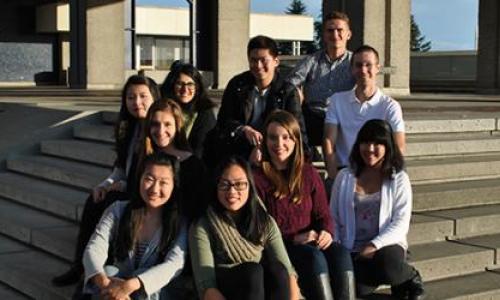
As university students, we will all inevitably find ourselves in a job interview at some point. Being asked questions by someone we don’t know can certainly be intimidating, and many can get flustered by the stress of the situation.
Yet, nothing is more enlightening than being on the other side of that desk and being an interviewer. I recently had the pleasure of serving on an SFSS hiring committee for a new Women’s Centre Coordinator and I gained so much insight on what distinguishes a good interviewee from a bad one. Here are some of the interview practices that I observed in my time as a student interviewee-turned-interviewer:
Be Prepared
Most interviews involve asking candidates about how much they know about an organization, so do your research beforehand. Knowing about a company’s values as well their organizational structure can only work in your favour, as you will not only able to appeal to what they value in your answers but also learn more about their work culture as well.
Be Specific
When situational questions arise that begin with phrases such as “Tell me about a time when…” and “Can you give me an example of when you…” interviewers are looking for you to give specific examples from your previous experiences that demonstrate your skills. Provide details on what exactly you did within this experience and the outcome of your actions – don’t be afraid to be a storyteller and let your stellar skills in that situation take center stage!
Understand What the Question is Asking
It was incredibly frustrating when candidates did not answer the question that was asked and instead just reiterated their answer to a previous question. Don’t be afraid to ask the interviewer to clarify parts of a question or to repeat it if you aren’t sure what is being asked of you. No interviewer wants to waste ten minutes listening to someone talk about an experience that is irrelevant to the question that has just been asked.
Don’t Repeat Yourself
I saw so many candidates go around in circles with general answers that were grounded in theory, as they would tell us about their values, but not of a specific instance in which they demonstrated those values. Without a solid story to back up their points, their answers were fluffy, unconvincing, and repetitive. That doesn’t mean that you can’t refer to a previous work experience more than once though- just make sure that you are describing a different skill or ability you demonstrated within that example than you did with previous questions.
It Is Better to Be Genuine Than Generic
When candidates are asked the dreaded “What could you improve on?” question, be honest about your weaknesses. We’re all human, we all have our flaws, and as an interviewer, I would rather see you humbly admitting to them than trying to tactfully evade the question. Openly disclose what you wish to improve on and the steps you would take to improve that skill instead.
Speak From the Heart
Overall, I found that the best interviewees were those who not only demonstrated that they were qualified for a position through specific examples based on previous experiences, but who also had a lot of heart. Passion for an organization really shines through and adds an extra spark to one’s answers – don’t be afraid to let it show!
Being an interviewer allowed me to see how much energy goes into the hiring process in order to find the best person to fill a position. I found that there is no such thing as a perfect candidate, but rather, interviewers look for someone with a balance of experience as well as a willingness to learn. Keeping in mind what the people from the other side of the desk are thinking, you have all the tools you need to ace an interview the next time you are placed in the hot seat.














